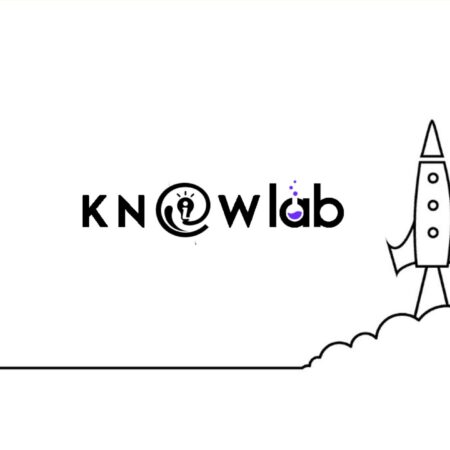 Grammar rules, annoying as they can be, are man-made. And man-made rules can always be unmade (or ignored). But if you’re up for the challenge, tightening up your grammar skills can pack a powerful punch in your writing.
Grammar rules, annoying as they can be, are man-made. And man-made rules can always be unmade (or ignored). But if you’re up for the challenge, tightening up your grammar skills can pack a powerful punch in your writing.
Proper grammar isn’t just a formality. Clean and clear copy makes for compelling content. Without the distraction of grammatical errors, readers can focus on — and better understand — your message.
Whether you’re an experienced writer or just getting started, I hope these guidelines will help you as much as they have helped me.
1. Every day vs. everyday
Every day is an adjective plus a noun, which means “each day.”
Everyday is an adjective used in front of a noun to describe something that’s normal or common.
Example: Every day, I make my cup of coffee, eat breakfast, and take a shower before work — but going to the gym is not an everyday activity for me.
Parts of speech (for beginners)A basic knowledge of the main parts of speech is the first step to grasping grammar and punctuation.Nouns Nouns name people, places, things, or ideas. Example: My brother had a stressful day at work.Pronouns Pronouns stand in for nouns. Example: I stopped by my friend’s house, but she wasn’t home.Conjunctions Conjunctions join two or more words or phrases. Examples: I would join you for drinks and dinner, but I have other plans tonight.Verb Verbs complete actions or show states of being. Example: When I was in college, I studied in Europe.Adjectives Adjectives are words that describe or modify other words. Example: I like to read at cozy coffee shops on rainy days.Adverb Adverbs describe verbs — specifically, how a verb is being done. Examples: I emailed my client, and he quickly responded.Articles Articles (a, an, the) specify which noun you’re talking about (and if the noun is general or specific in its reference). Example: The software had a bug in it.Preposition Prepositions show a relationship between a noun/pronoun and another word. Example: My co-workers and I often eat lunch in the break room, where we talk about our plans for the day.
2. A lot/alot/allot
A lot describes many, and it should always be spelled in two words (never “alot.”)
Allot is a verb that means to give a share or portion.
Example: Our department spent a lot on supplies last month, so we asked if we could allot a higher amount in the budget.
3. I/me
I is a subject, which means it completes an action.
Me is an object, which means it receives an action.
Example: My siblings and I had dinner with our parents. My mom spent the whole dinner complaining to my sister and me about the weather.
(It may sound funny to say “My friend and me,” but when you are on the receiving end of the verb, it’s correct.)
4. Between/among
Between is for two, distinct things.
Among should be used for things or people that aren’t distinctly separated, or that are seen as one collective object.
Example: Among the employees, there was a need to choose between Apple and Android for their new company devices.
5. Affect/effect
Affect is a verb meaning to change or have an impact on.
Effect is a noun meaning the result of an action.
Example: A cup of coffee at night can affect sleep, since caffeine has a stimulating effect.
6. Lay vs. lie
Lay is a verb (past tense: laid) meaning to physically set an object down.
Lie is a verb (the confusing past tense: lay) meaning to physically put yourself in a flat position on a surface (or, of course, not to tell the truth).
Example: Every night, the mom lays fresh blankets on the bed before her son lies down.
7. A while vs. awhile
A while is a noun phrase meaning a period of time.
Awhile is an adverb meaning for a time.
Example: It’s been a while since I saw my college roommates.
The teacher told her students to go read awhile.
8. Further/farther
Further has to do with time.
Farther measures distance.
Example: Further into my career, I would be willing to travel farther for meetings.
9. Less/fewer
Less indicates one item (or a collective group of items). It is used before uncountable nouns.
Fewer indicates more than two items. It is used before plural (countable) nouns.
Example: I’m eating less meat these days and drinking fewer cups of coffee.
10. Besides vs. beside
Besides is an adverb and a preposition meaning in addition to or apart from.
Beside is a preposition that means nearby or at the side of.
Example: Besides the coffee, there is also tea, and the sugar is beside the stove.
11. Peek/pique/peak
To peek is a verb meaning to take a look (or a noun meaning a look).
To pique is to stimulate curiosity or interest.
Peak is the top of a mountain (or, as a verb, to reach a maximum point).
Example: A sneak peek of the new restaurant’s menu piqued my interest, but it was a bad idea to visit during peak hours.
12. Bad/badly
Bad is an adjective used to describe a noun.
Badly is an adverb used to clarify a verb.
Example: It’s not just bad luck — I did badly on the test because I didn’t study.
13. Who/whom
Who should always refer to the subject of the sentence, or the person doing the action of the verb.
Whom should refer to the object of a sentence, or the person receiving the action of the verb.
Example: I didn’t know anyone in the office who could help me fix the problem, so I consulted with a developer whom I met at a conference.
A quick trick for remembering the difference: Turn the sentence into a question. If you can answer the question with he or she, use who. If you can answer it with him or her, use whom.
14. Into/in to
Into indicates movement.
“In” and “to” are often just unrelated, neighboring words in a sentence, usually meaning “in order to.” When movement is taking place, use “into” as one word.
Example: The crowd erupted into applause when she walked into the room.
The consultant came in to train us last week.
15. To/two/too
To is a preposition indicating direction.
Two is a number.
Too is an adverb that can mean “excessively” or “also.”
Example: I wanted to get to work two hours early, but I was too tired.
16. Accept/except
Accept is a verb that means to consent.
Except is a preposition that indicates an exception or exclusion.
Example: The teenagers mostly accept their parents’ rules, except for the screen time limit.
17. Assure vs. insure vs. ensure
Assure is a verb, meaning to tell someone something positively.
Insure is a verb, meaning to provide insurance.
Ensure is a verb, meaning to guarantee.
Example: I assured my husband it’s a wise investment to insure a rental car while on vacation to ensure we won’t have to pay for any vehicle damages.
18. Emigrate vs. immigrate
Emigrate is a verb meaning to leave one’s country.
Immigrate is a verb meaning to come into another country to live permanently.
Example: She emigrated from Japan and began the immigration process to live in Canada.
19. Whether vs. weather
Whether is a conjunction used to introduce a clause and express a choice between two or more things.
Weather can be a noun or a verb. As a noun, it means the state of a certain place (rain, sun, snow, etc.). As a verb, it means to withstand something.
Example: Whether or not the weather stays sunny, we plan to take a road trip to the beach.
20. Lose vs. loose
Lose is a verb meaning to fail to win or to misplace something.
Loose is an adjective meaning not tight.
Example: It’s easy to lose a button when it’s loose.
21. Compliment vs. complement
Compliment can be either a verb or a noun related to praising someone.
Complement can be either a verb or a noun related to something that goes well with another thing.
Example: I complimented the hostess on her wine choice; it really complemented the dinner she prepared.
22. Your/you’re
Your is possessive — it implies belonging.
You’re is a contraction meaning “you are.”
Example: Your presentation was amazing. I bet you’re going to get a promotion.
23. There/their/they’re
There is demonstrative, which means it refers to a place or idea.
Their is possessive, which means it indicates belonging.
They’re is a contraction meaning “they are.”
Example: There is a rumor that their company is going public, but they’re quite secretive about it.
24. It’s/its
It’s is a contraction meaning “it is.”
Its is a possessive, which indicates belonging.
Example: It’s cute how the dog wags its tail whenever it wants a treat.
25. Whose/who’s
Whose is a possessive, indicating belonging.
Who’s is a contraction meaning “who is.”
Example: The man whose car broke down asked his neighbor, who’s an experienced mechanic, for help.
26. Than/then
Than indicates comparison.
Then has to do with timing.
Example: I have more money saved for retirement now than I did then.
27. Semicolons
Semicolons (;) separate two complete sentences.
Colons (:) separate two independent clauses when the second explains or illustrates the first.
Example: The sunset was gorgeous; I grabbed my camera to take a picture.
The coffee shop was full of customers this morning: Today was the grand opening.
28. Comma splices
A comma splice occurs when you use a comma to connect two complete sentences (a complete sentence has a subject and a verb).
(Wrong) Example: I’m reading a suspenseful novel, I might finish it tonight.
Instead of a comma, try any of the following options:
- Comma + coordinating conjunction: I’m reading a suspenseful novel, and I might finish it tonight.
The acronym FANBOYS (for, and, nor, but, or, yet, so) is helpful for mastering comma use. Use a comma whenever a FANBOYS conjunction separates two complete sentences.
- Semicolon: I’m reading a suspenseful novel; I might finish it tonight.
- Period: I’m reading a suspenseful novel. I might finish it tonight.
- Em dash: I’m reading a suspenseful novel — I might finish it tonight.
29. Compound modifiers
When a group of words serves as a single adjective, use hyphens to connect them.
Example: My two-year-old son needs a nap this afternoon.
30. Apostrophes (‘)
Use apostrophes in contractions (a shorter version of two words) or possession (which indicates belonging). Generally, when there is more than one of something, the apostrophe goes after the “s.”
Example: It’s surprising my wife’s boss asked her to take on that project on just two days’ notice.



